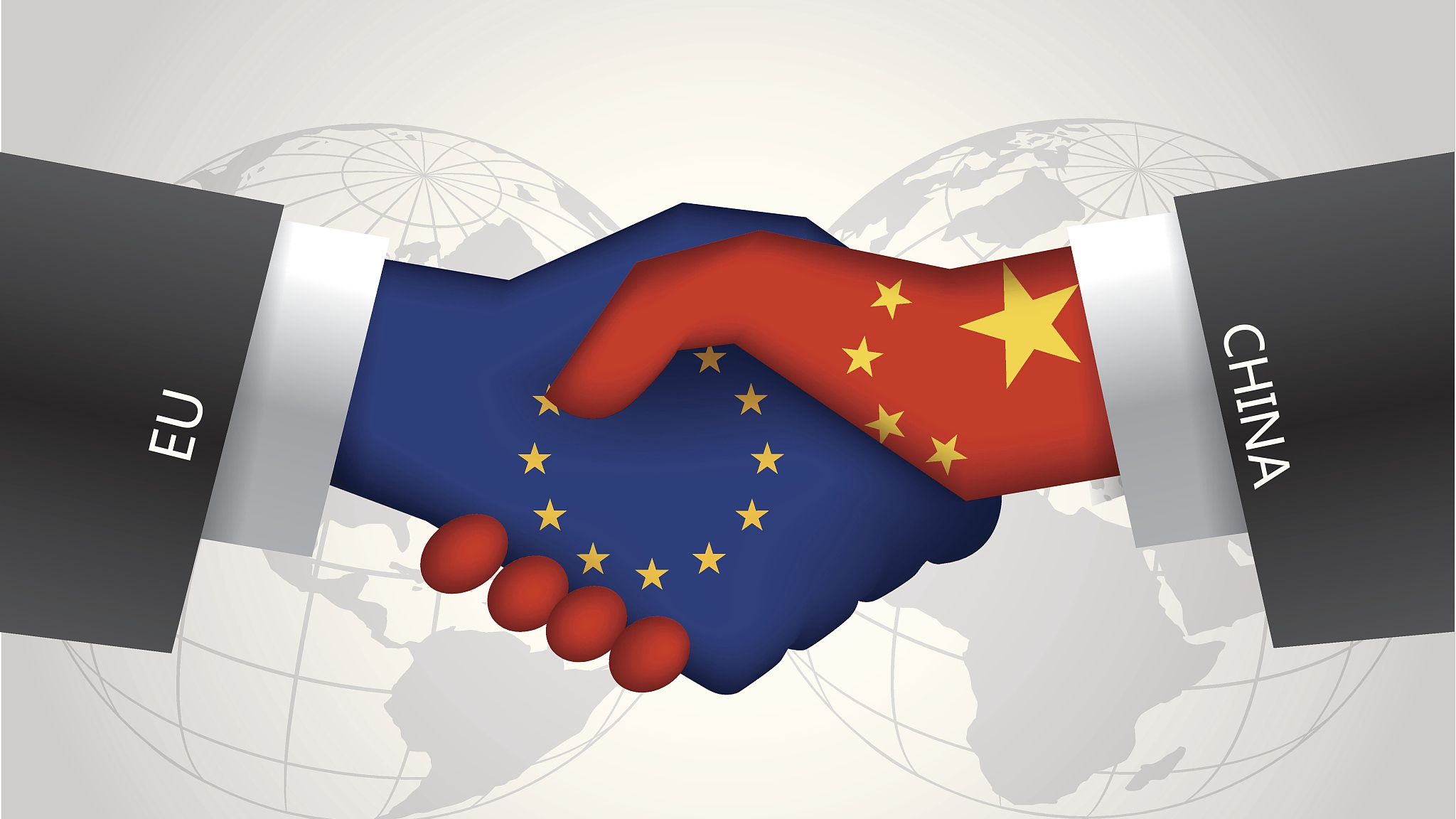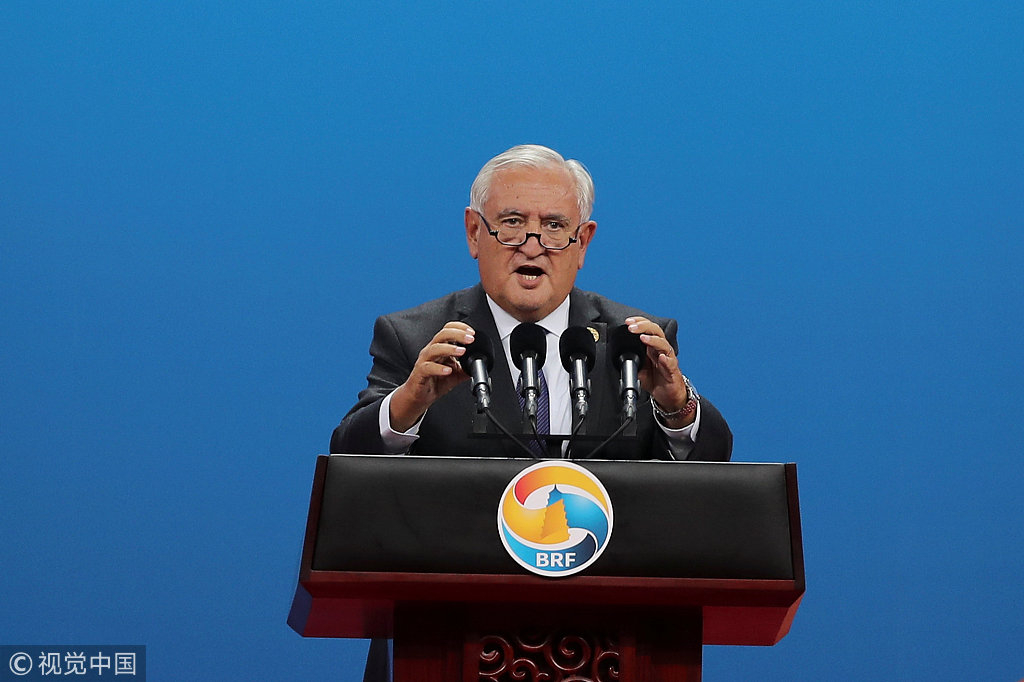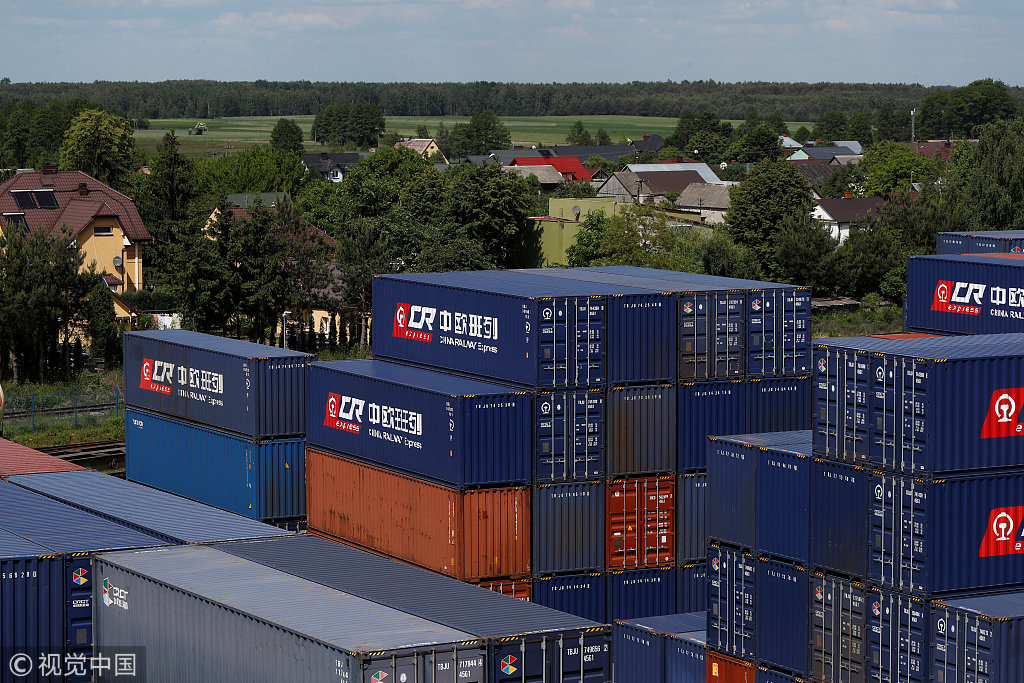
Opinion
12:24, 20-Mar-2019
Will the EU become the Western 'anchor' of the BRI?
Updated
13:22, 20-Mar-2019
Jiang Shixue

Editor's note: Jiang Shixue is a professor at the Institute of Global Studies at Shanghai University. The article reflects the author's opinion, and not necessarily the views of CGTN.
Chinese President Xi Jinping will pay state visits to Italy, Monaco and France starting from March 21. Naturally, President Xi's high-level visits will further promote China's relationship with those three nations as well as with Europe.
It can be imagined that the Belt and Road Initiative (BRI) will be one of the topics to be discussed between President Xi and his European counterparts, as the question of how to further implement the BRI has become one of the priorities for China's foreign policy.
It is reported that Italy might become the first founding member of the European Union (EU) to sign a memorandum of understanding on jointly building the BRI cooperation with China. It demonstrates that European countries, including EU members, have a keen interest in and positive response toward the BRI to strengthen economic exchanges.
The BRI is often understood as Chinese overseas investment. As a matter of fact, it is composed of five parts: policy coordination, infrastructure connection, trade facilitation, financial cooperation and people-to-people exchanges. That is, investment is only one of the five pillars of the initiative.

Jean-Pierre Raffarin, former prime minister of France, delivers his speech during the Belt and Road Forum for International Cooperation in Beijing, China, May 14, 2017. /VCG Photo
Jean-Pierre Raffarin, former prime minister of France, delivers his speech during the Belt and Road Forum for International Cooperation in Beijing, China, May 14, 2017. /VCG Photo
Undoubtedly, even before the BRI was proposed in 2013, several mechanisms of policy coordination had already existed between China and the EU and also between China and many individual European countries. Until now, it seems that it is not clear how the effectiveness of the existing mechanisms of policy coordination can be strengthened by both sides within the framework of the BRI. One possible way of achieving this objective is to encourage the think-tanks from both sides to play a more important role.
Infrastructure connection between China and Europe has already reaped an early harvest. The most notable example is rail cargo transportation between China and Europe. Since 2011, the trans-Eurasian railway service has connected 15 cities in Europe with over 20 cities in China. But the trains returning to China are not fully loaded. In the future, both sides need to figure out a solution to the problem.
Bilateral trade is one of the most important areas of cooperation between China and Europe. In a sense, it has become the powerful engine of their bilateral relationship. Indeed, in the face of rising protectionism, China and Europe should uphold the multilateral system by encouraging trade facilitation.
According to China's official document, The Vision and Actions on Jointly Building the Silk Road Economic Belt and the 21st Century Maritime Silk Road, issued in March 2015, investment promotion is included in trade facilitation. It is a well-recognized fact that Chinese investment in Europe has facilitated its economic and social progress.
However, some European policy-makers, scholars and journalists have expressed their concern over the possibility that "China is buying up Europe" or "scrambling for Europe." The EU is going to apply the newly-created European level rules on foreign investment screening very soon. There are guesses that the EU is making these rules in response to its concerns about China buying up Europe.

China Railway Express containers are seen at Europort terminal near Malaszewicze, Poland, May 24, 2018. /VCG Photo
China Railway Express containers are seen at Europort terminal near Malaszewicze, Poland, May 24, 2018. /VCG Photo
In fact, such regulations will be harmful to the EU's ability to attract foreign investment. Therefore, in order to put the BRI into operation, the wrong mentality of a "fear of China" or even a "China threat" spreading in Europe must be eliminated immediately.
The negotiations for a bilateral investment treaty (BIT) between China and the EU are still going on and will hopefully be completed shortly. When the BIT comes into effect in the near future, Chinese investment in Europe and European investment in China will be greatly facilitated. Moreover, the BIT will pave the way for the negotiation of a possible free trade agreement between the two sides.
So far, financial cooperation between China and Europe has been fairly successful. However, compared with trade, financial cooperation remains under-developed. To change this, China needs to adopt more liberal policies for its financial sector, and the EU needs to encourage its financial institutions to bring more expertise to China.
People-to-people exchanges have become increasingly important in the bilateral relations between China and Europe. From Confucius Institutes to China Daily, from martial arts to movies, and from exhibitions to the translation of Chinese books into European languages, China has done everything possible to make itself understood.
Hopefully, in the process of advancing people-to-people exchanges between China and Europe within the framework of the BRI, both sides will foster efforts. On the one hand, China should improve its way of telling the "China story"; on the other, Europeans should put down their "tinted lens" about China.
An influential report titled EU-China Economic Relations to 2025: Building a Common Future, published in September 2017 by Chinese and European think-tanks, acknowledges that BRI-related investment, trade and industrial cooperation can help invigorate growth in the EU and its neighborhood. Indeed, as the report says, the EU has the potential to become the Western "anchor' of the BRI, which would enable Europe to use the initiative as a platform for further expanding bilateral trade and economic cooperation.
(If you want to contribute and have specific expertise, please contact us at opinions@cgtn.com.)

SITEMAP
Copyright © 2018 CGTN. Beijing ICP prepared NO.16065310-3
Copyright © 2018 CGTN. Beijing ICP prepared NO.16065310-3